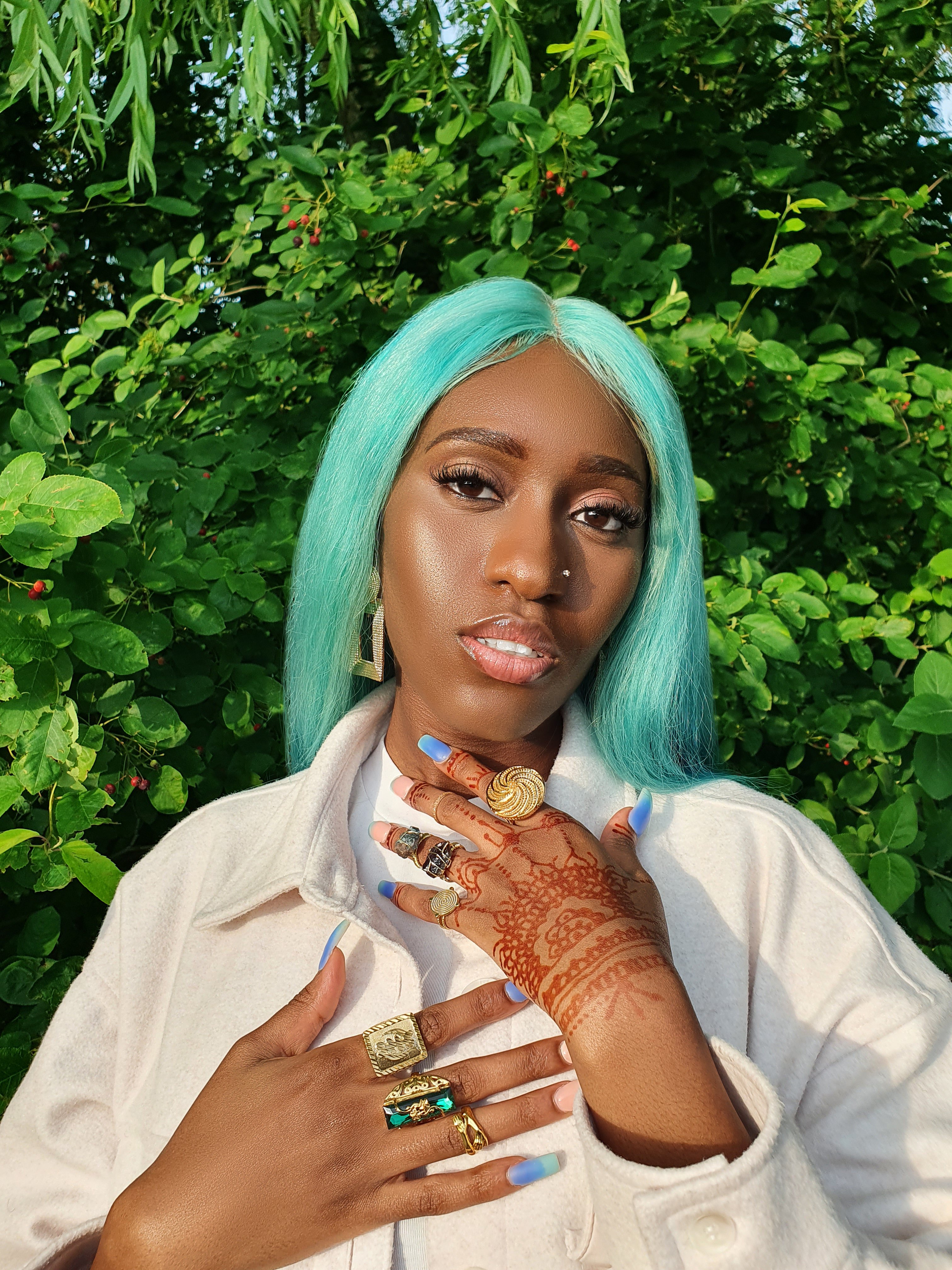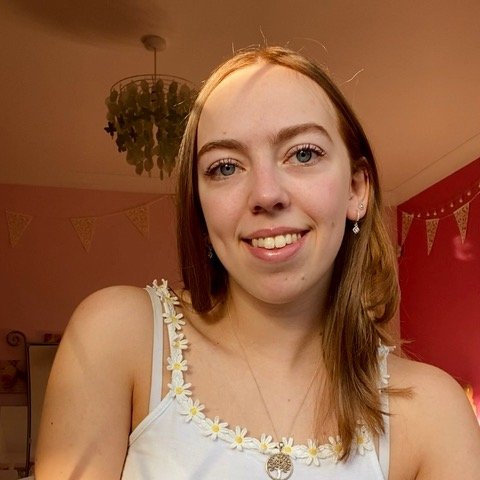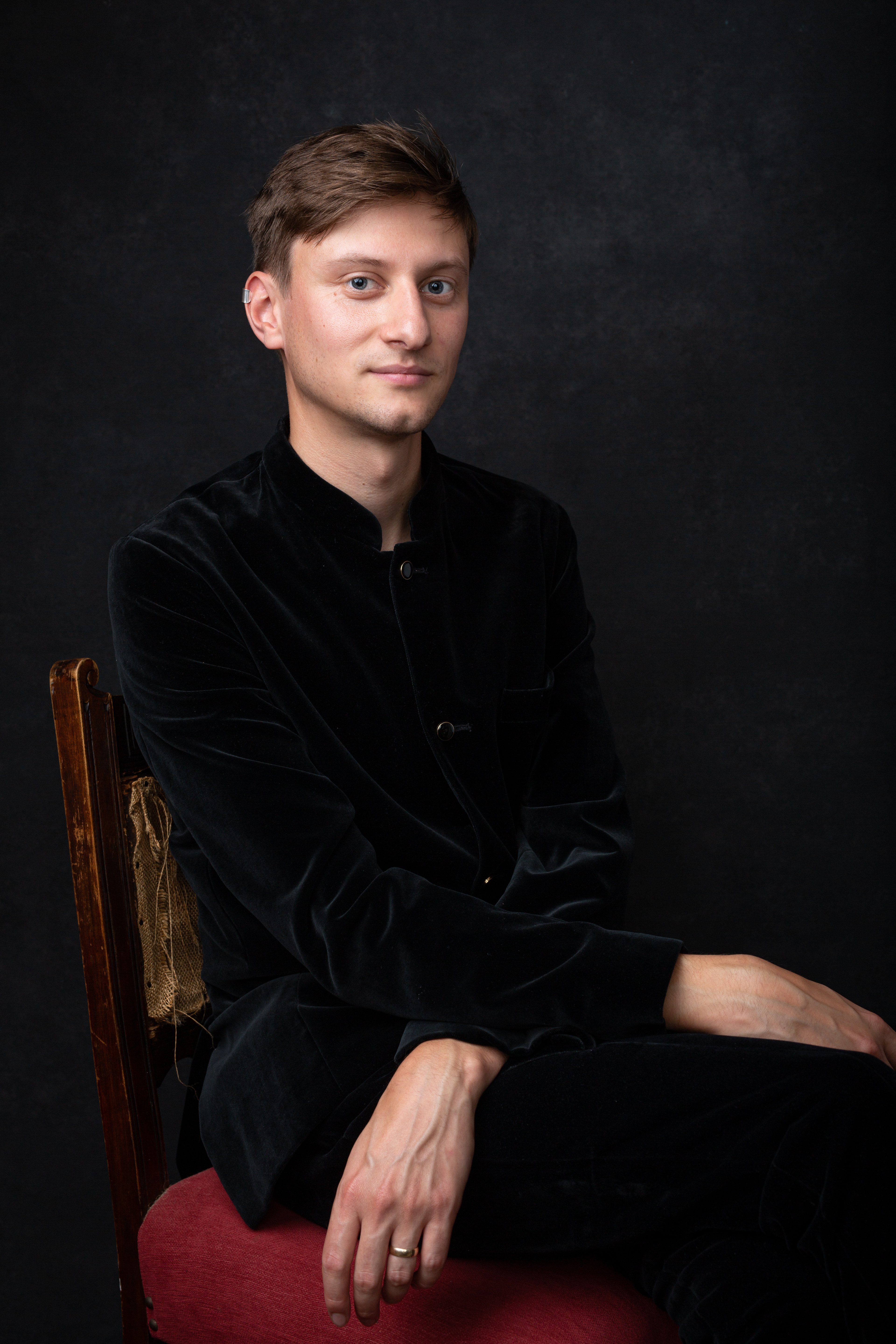Winners Announced: Kendrew Songwriting Competition, 2023
Open to all current students at the University of Oxford, this year’s competition drew 28 submissions from students across a number of colleges and degree programmes. The quality of the songs was unvaryingly high, with a wide range of styles represented. Submissions were reviewed by Tessa Cavanna (singer/producer and Assistant Producer, Oxford Contemporary Music); Sarah Hill (Associate Professor of Popular Music at the Faculty of Music and Tutor at St Peter's College); Daniel Hulme (producer/composer and Electronic Music Studio Manager, Faculty of Music); and Jason Stanyek (Associate Professor of Ethnomusicology at the Faculty of Music and Fellow and Tutor at St John’s College).
This year's winning song is "Don’t Hide" by Yvonne Ile (a doctoral student at the Faculty of Music and Jesus College). Second prize went to "Improbable Things," by Ashleigh Davies (a fourth year engineering student at St John’s). The panel also gave an honourable mention to Leo Geyer (a doctoral student at the Faculty of Music and St Catherine's College) for "Blink."
Below you'll find MP3s of the winning submissions, with information about the songwriters and their songs. The members of the panel would like to congratulate the winners and also extend their heartfelt thanks to all those who participated in the competition.
“Don’t Hide” by Yvonne Ile
 Yvonne Ile
Yvonne Ile
Yvonne shares, "I am a doctoral student at Jesus College (DPhil Music) studying the connection between Blackface Minstrelsy, Cultural Appropriation and the Popular Music Industry. I have the honour of being the first Black/African person to ever be admitted onto a DPhil in Music at the University of Oxford."
Based on Man’s “Fall from Grace” in Genesis 3, the song follows the journey that one has to take to discover their true self, amidst the chaos and confusion of life. It is written from the perspective of an individual who is longing for something they have access to but continues to search for that something in other things: “prayers and potions to get you to a place, that fear and motion they took you away from”. As much as this song focuses on relationship with God and the liberation from the world/worldy things, it also focuses on the liberation of the mind; a huge part of the message within this song is about trusting in yourself, loving yourself and allowing yourself to grow. It is fighting and breaking through chains, as well as struggle in order to emancipate your mind from the things we have normalised. We can manifest our reality. These lines, “The manifestation of a million whys and hows, the realisation that nobody can stop you now”, refer to the outcome of asking yourself how you can achieve something and why something is happening to you; as a person, you go through the process of asking yourself questions and thinking you’ll fail before you succeed but in order to come up with a plan for success, you need to ask the questions first. How can you create a solution if there’s no problem? So we manifest, we create, we evolve and we grow and this song shows that before, during and after we do all of this, we are allowed to be – we can “go home” and be at peace. I play with the idea of Religion and Spiritualism and include lyrics that allude to this theme within the song. It’s highly influenced by my own relationship with God and creation and what I feel God wants me to know and share. Drawing on my Nigerian roots, I utilise powerful Yoruba incantations (an adlib mixed low in the first verse) and positive affirmations with contagious beats to bring to the light what is hidden. ‘Don’t Hide’ combines ambient vocals with uplifting lyrics to deliver an Afro-Soul/Afro-R&B anthem.
I really feel that this is a sonic awakening for me. This song is so much more than just vocals and vibes — it's prayer and good vibes — a coming-together of Spiritualism and relationship with God. This is a song about the journey that is ‘self-discovery’. We allow life to twist and turn us about and knock us down, and we don't always know how to continue... I want people to know that it's okay to be yourself and that when you find people who embrace you for you, you don't need to run from them because God is Love.
“Improbable Things” by Ashleigh Davies
 Ashleigh Davies
Ashleigh Davies
Ash Davies is a fourth year engineering student at St John’s. She has been writing, recording and producing her own music for a number of years and also enjoys performing live when she gets the
opportunity. Before starting her PhD next year, she hopes to finish producing and release her first full album over the summer, which will be available on Spotify and other platforms.
Ash said this about the inspiration behind her song:
‘Improbable Things’ is a song I wrote this year, and recently performed at the St John’s Arts Week Showcase. It reflects on the unique feeling of sadness that comes with a relationship that never seems to be in the right place at the right time. The verses tell the story of a push-and-pull between two people struggling to keep each other close, but unable to stay away, and the chorus touches on the nostalgia of reflecting on relationships past. I chose to combine the theme of travel in the chorus with the notion of ‘nowhere’ as the destination, as I felt it reflected the sense of having to leave, despite the uncertainty and lack of direction that that can bring.
The initial title I chose for this song was ‘Pages’, as I felt one of the main themes was the sense of wanting to turn back to a previous chapter – referenced in the choruses. As I worked on recording and producing the song, I began to feel more of a connection to the idea that the relationship had had to end as a result of the improbable demands of the situation, hence its final title ‘Improbable Things’. Writing this song helped me to look back and finally see the situation with clarity; I have found songwriting to be an invaluable outlet for self-reflection since I started several years ago.
The main instruments on this track are the acoustic guitar on which I wrote the song, the main vocal and harmonies which I recorded on a condenser microphone, software instruments including bass guitar, strings and keyboard, which I programme using Logic Pro X on my laptop, and some percussion that I’ve brought in to give the bridge a unique soundscape. I tend to write my songs on guitar as I find it very versatile and sympathetic as an instrument, though I find the piano I add to the tracks often takes on the main melody. The bass I use in Logic is one I found last year that I find fills out a track and gives depth and contrast to the chorus sections. I like experimenting with vocal harmonies and some of my more recent songs have taken on an almost choral feel, which suits the abstract and ethereal themes behind some of the music.
I write and record my music from my bedrooms at home and at university, and produce the tracks in Logic Pro X. Being self-sufficient within the process of writing, recording and producing gives me the creative freedom to take a song wherever feels most authentic to the sentiment behind it. I enjoy music theory and, as an Engineering student I find sound engineering and production engaging and enjoyable. In the coming months, I hope to release a new album, and perform my music at more live events such as busking and open mics.
“Blink” by Leo Geyer
Leo Geyer is a young composer, conductor, and presenter. He began his career at the Royal Opera House as a Cover Conductor for The Royal Ballet and before founding Constella OperaBallet. As a guest conductor, Leo has collaborated with the BBC Concert Orchestra, English National Opera, Birmingham Contemporary Music Ensemble, the National Theatre and other ensembles.
Leo has received various accolades for composition the most recent of which is the Lord Mayor’s Composition Prize. Leo’s music has been described by The Times as “imaginative and beautifully shaped”, and has received performances by ensembles including the English Chamber Orchestra, London Sinfonietta, Rambert Dance Company and Opera North. Leo is currently working on his first major film commission, creating a soundtrack for the Ukrainian silent film Man with a Movie Camera. Leo is studying for a doctorate in opera-ballet composition as the Senior Music Scholar at St Catherine’s College, Oxford.
Following his presenter traineeship with the BBC and debut at the Proms at the Royal Albert Hall, Leo has appeared on BBC Radio, BBC News and Sky Arts TV. Currently, Leo is acting as the presenter, composer, conductor, and executive producer on 90-min documentary film for the BBC with Constella OperaBallet and Two Rivers Media.
 Leo Geyer
Leo Geyer
Leo said this about his song:
Blink is a song from a collection written for mezzo-soprano Rachel Maby who is uniquely gifted in both classical and jazz idioms. Similarly, pianist Hamish Brown is a longstanding collaborator and has fluency in jazz and classical idioms. Blink was recorded in St. Margret’s Church in South East London, which has beautiful acoustics due to its wooden ceiling and carpeted floor. The recording engineer was Oliver Browning and the approach we took was generally a classical one, focusing on capturing the natural sound of the acoustics. However, we additional included a close mic to capture the intimacy of jazz sound and the very soft vocal writing. I worked closely on the recording with the Rachel to find the right vocal style that incorporates that straight tone sound of jazz with the expressive control and dexterity that is available with a classical approach.
Aesthetically, the music occupies a soundworld between contemporary classical and jazz idioms. Harmonically, much of the language is based on the superimposition of a pair fifths, a semi-tone apart e.g. B, F# over C, G. On hearing, this sounds like the relatively commonplace jazz chord
Cmaj9♯11 (C, E, G, B, D, F#), however the absence of inner notes, creates a hollow, and somewhat melancholic feel that I felt was appropriate for this narrative. I viewed this chord not as the governing principle for the harmony, but rather as a harmonic quality whereby much of my chordal writing utilises perfect fifths and major sevenths in their construction. The jazz influence can also be heard in much of the melodic writing, whereby there is particular emphasis to the minor third. Rhythmically, there are clear moments of swing, but most of the language has a more free and expressive quality, and the vocal writing aims to reflect spoken rhythm so that the text can be heard.
The poem is a reimagining of the cumulative tale (or chain structure) form, whereby lines of text are repeated and built upon to create a longer form narrative. The nursery rhyme This Is the House That Jack Built is probably the best example of this. I also wanted to use the cumulative structure in the music, though I think of this as more a spiral, rather than repeated material with block-like additions. Specifically, the form begins with the presentation of a musical phrase followed by an extended variation of the first. The third phrase is then an extended variation of the second, and so it continues; thus spiralling out as each cyclic variation becomes larger and increasingly more development.
To further reflect the poem, I personified the low register of the piano as night (and Depravity) and the upper register as dawn (Purity). The voice is placed in the middle of these two extremes, signifying this half-light that the protagonist finds themselves in. The quiet stillness that the poem describes is quite obviously depicted in the music with sparse textures and soft dynamics. Moments of energy come forward to portray the drunkards and joggers.